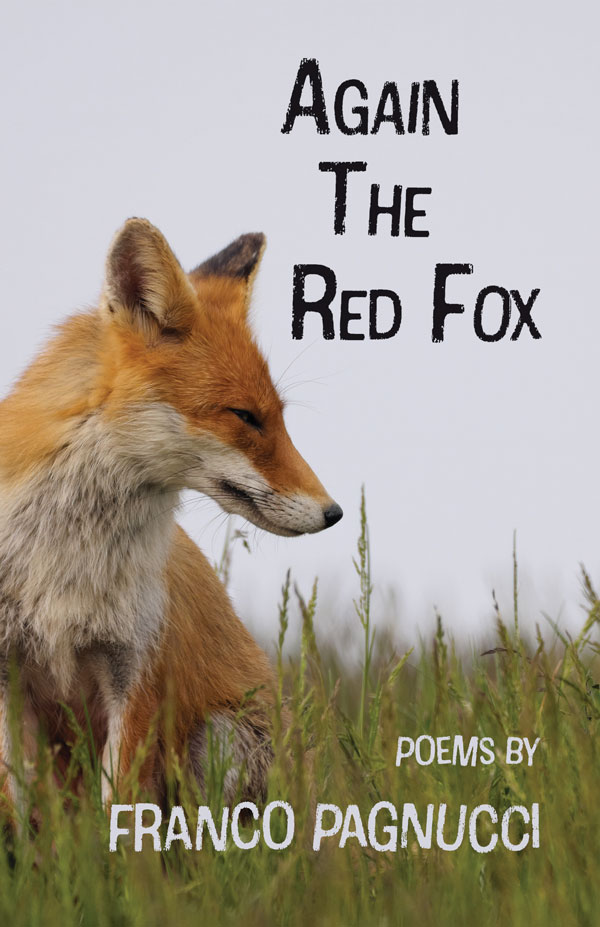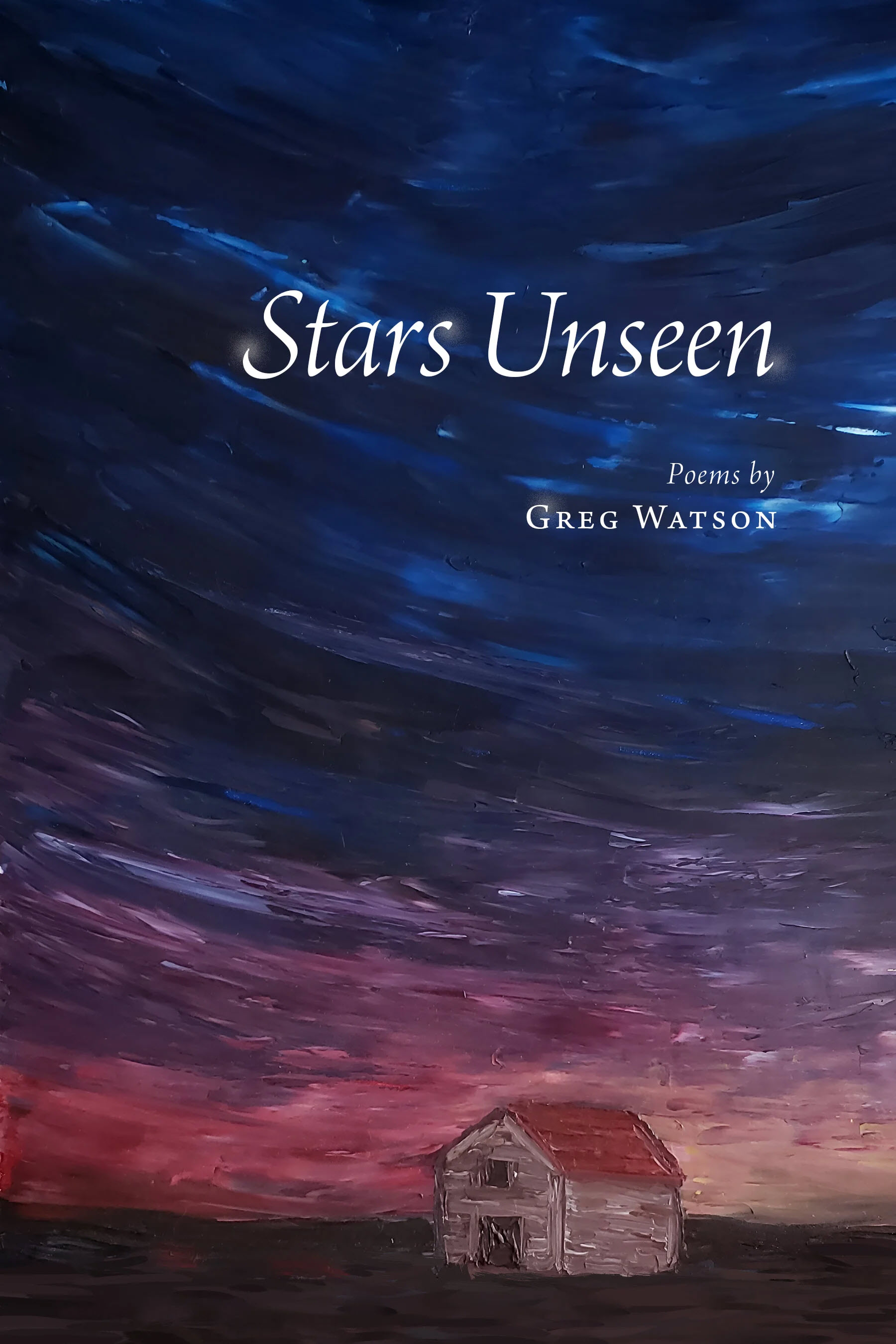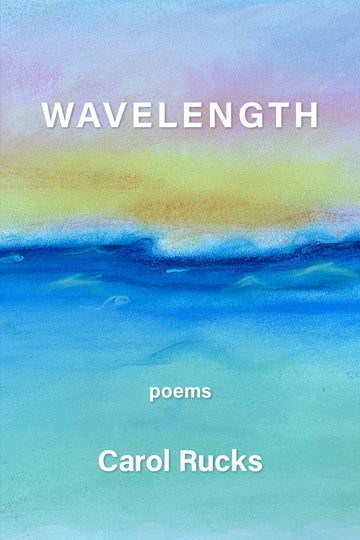| <- Back to main page | ||
(Water’s Edge Press)
“Those who can, do; those who can’t, teach.”
That old saw definitely does not apply to Franco Pagnucci, who taught Composition and Creative Writing at the University of Wisconsin-Platteville for 34 years.

Water’s Edge Press has recently published Pagnucci’s eighth volume of poetry, entitled Again The Red Fox. In these 83 poems, Franco’s intention is “to give you what I saw,” to cast a light on specific moments of connection with the natural world and to help us see the ordinary, the usual, in a new way.
The collection literally begins and ends with the red fox in the middle of a gravel road, a border between her world and ours, “looking at us,” calm and unfazed. And then, in her own time at her own pace, she is gone, into the woods.
The red fox “doesn’t live in our neighborhood”; rather, “we inhabit the circle of her range.” And our own “circle of range” is inhabited by the rich diversity found throughout Wisconsin’s northwestern woods—deer, of course, but also (among many others) a fisher, two white ermines, a beaver, a river otter, peepers, an old snapper, and innumerable birds of all stripes.
Birds have their own “neighborhood” and can seem quite awkward, ungainly, even comical, in ours. On the ground the brown crane looks “like a man / with a heavy bottom / who is wearing a cap with a long visor,” but in the air he lifts off with ease and grace, his “smooth lapping wings, / hammocks swinging in the wind.”
Fish, too, have their own “neighborhood,” and when Franco’s daughter catches a five-pounder, she decides to return it to its world if she can revive it: “Behind the fish, she began fishtailing the fish’s tail” and then she slid “a hand along its back, / like a wish, / a blown kiss, / and the fish was gone.”
We can range into other neighborhoods, but we are not of them. This distinction comes home profoundly when gliding over clear water in a canoe under sun and blue sky: “How easy to forget oneself / here where one counts for nothing.”
Forgetting oneself makes the connections possible. As a creek “slithers over moss / silence spreads onto gray-white slugs.” How can you not “find your breathing pacing its long, slow runs”? When he’s absorbed in watching a kingbird, “The earth’s spin felt a little slower.”
From connections arise reflections. Encountering a towhee on Kelly Lake Road, “It was the look of his eye that held the light / and made you remember the late afternoon wind, sun at tree line, / the friend with Parkinson’s still undecided, still alive.” Watching birds in his backyard, he notices they come and go not individually, but in bunches: “Seeing them leave in these waves,” he realizes, “makes us less lonely.” And these reflections in “Indigo Bunting”:
When my words were not enough
and I wished I could play
like Rachmaninoff
and sweep you away,
a small gray-black bird came
to the deck railing,
fluttered at the window,
a gentle flutter,
and sat again along the railing
as the sun rose above the trees.
I saw the bird’s deep, deep blue,
the quiet blue and wanted it for you.
One final note: Poetry began as an oral art, and still is. Try reading aloud this description of the winter wind at night in an “icy brittle world” as “the wind’s wind-ups / whap against the house.” Or this in a warmer time, “when the sun sparks damp spruce tips / along the hill.” Such gems appear throughout. Savor them.
From distinct neighborhoods to a circle of range, from connections to reflections. Again The Red Fox is an insightful collection of poems that help us see our world—and ourselves—in a new light.
- William K. Spofford
(Holy Cow! Press)
Poets can inspire, delight, cajole, rant, mourn, reveal, arouse, enthrall, narrate, or just plain astonish. Greg Watson, he’s a conductor. Like Dante’s Virgil, he’s always present with a guiding hand, but never gets in the way of what he’s showing you. And in his new collection Stars Unseen, we travel on many different levels, diving into a thrift store, strolling past a deer nibbling in a cemetery, attending a naturalization ceremony. In “Searching for the Poet’s Grave”, for instance, our conductor tells us:

They are searching for Lorca’s remains again
today, their big yellow machinery
nudging and clawing at the silent earth
But it is as if we ourselves see the workers
coming back empty handed, the shapes of
new countries emerging through their shirt-sweat
while the poet just goes on dreaming.
Watson conducts us into his own life as well—his Finnish ancestry, his unsteady mother who found religion, the older brother who could be a bully, his beloved daughter, his growing up amid poverty and tumult. “What We Carried With Us” has a heartbreaking list of items he would take with him to a new foster home:
We carried our toothbrushes and combs,
clothes and underwear, carried whatever toys
or stuffed animal could be retrieved,
while the cacophony of sirens sped our comatose
mother to the cold comfort of hospital rooms
Although Watson’s laid-back verses do not call attention to themselves, notice the procession of “co” and “ca” sounds: combs, clothes, carried, could, cacophony, comatose, cold, comfort. Perhaps it’s this sparse but subconsciously powerful artistry that makes the poem more than a mere confessional.
Though a more down-to-earth collections, Stars Unseen still has mystical, lyrical touches that recall Watson’s earlier work:
The world is not my home, they are singing,
so happy to only be passing through.
But I don’t know what could be better than
this—the earth that accepts us again
(from “Baptism”)
These lines echo Robert Frost’s comment in “Birches” that “Earth’s the right place for love: / I don’t know where it's likely to go better.”
Despite the dark paths traveled, Greg Watson’s compassion and understanding are always there, like glimmering stars, to guide us on our way.
- Joel Van Valin
(Kelsay Books)

I heard a flutter
of laughter in the street,
the music of birds
deserting
a nearby tree.
Within my own body
a faint tremor
of unseen light
pulsed inside my skin
How full the morning:
the spilled sun,
the memory of birds,
the scurrying of mice
trying to live free.
(from “Mice”)
Were the poet William Wordsworth to walk the earth again in the year 2025, I fear he would be discombobulated and not a little in despair about all the noisy tumult surrounding him. Hopefully someone would give him a book like Wavelength, by Minneapolis poet Carol Rucks. Her poems, which so often achieve solace in the quiet embrace of nature, are a tonic for anxiety and panacea against angst. Which is all the more surprising because the setting is often the city. The wandering poem “The Years It Took to Find You” starts out with:
I roamed the city on the number six bus
with an eye on storefronts and sidewalks
exploring tabletops, ties, and shirt sleeves.
But the search ends in a bucolic landscape:
I checked the perfect rectangle
of the rear view mirror,
hoping for a calm face, the sturdy
gait of one who gladly wanders
through the broken and falling leaves
along the river, tree branches
swaying above his head
Rucks seems to have an innate ability to look at the world from a different viewpoint—that of a tree, say, or a crow:
sometimes distracted by light and beauty
but keeping only what can help him
he earns his way among the startled
the living and the dead.
(from “Ask the Crow”)
These poems may not be particularly wise or revelatory, but they possess something perhaps more valuable: their own hum of peace. Personal touches here and there—dreams of Mick Jagger, details about the poet’s “man cave”—add color and humor, but Wavelength is (and Wordsworth would appreciate this) one of those universal collections that nearly anyone could identify with, celebrating universal things. Like, say, “Happy Hour”, where
we’ll sit at a hidden table
and sip Cabernet,
eat Spanish cheeses.
And all the quarreling,
strong opinions
and calcified arguments,
will fall away. Time,
the great blue river
between us, will timbre
generous waves.
- Joel Van Valin